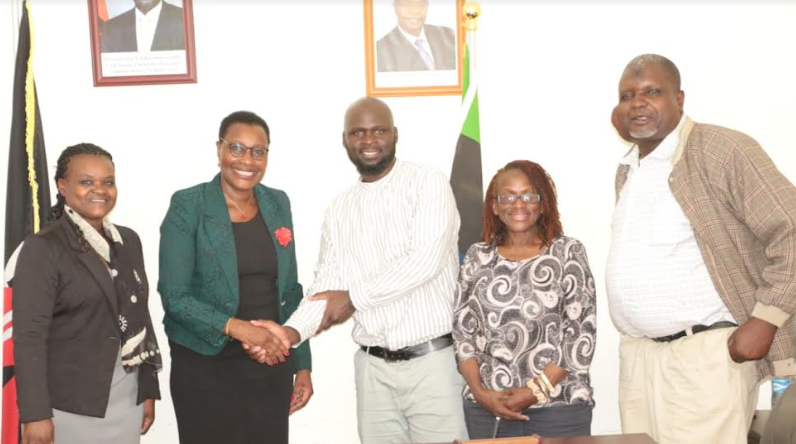The Kenya Association for the Welfare of People with Epilepsy (KAWE) plans to sensitize Primary Healthcare promoters in Busia on the disease.
Speaking during a courtesy call to Busia County Executive Committee Member (CECM) for Health, Beatrice Nakholi, a clinical officer for the organization, Byran Tabani said that there were very few neurologists across the country, and relying on them will widen the treatment gap.
“The epilepsy treatment gap is currently around 80%, so it means only two out of 10 patients are able to get treatment, and the other eight will look for other traditional treatments,” he said.
Tabani explained that Primary Healthcare Promoters are the closest to these patients, and there is a need to train them so that they can take care of the patients.
‘So, the World Health Organization (WHO) came up with a strategy to try to narrow the gap by coming up with a roadmap from 2022 to 2030″, said Tabani.
He added that the roadmap targets 90% of patients to be aware that the disease is treatable, 80% to access appropriate, safe, and affordable treatment, and 70% to be on treatment and well controlled.
‘So, they encouraged us to partner with as many partners as possible so that we can tackle the big gap,’ he said.
The official stated that they started to engage counties by reminding them to prioritize epilepsy in their annual budgets.
“We have gone to the County Assembly of Tharaka Nithi to sensitize the MCAs and identify a champion to spearhead epilepsy matters in the County Assembly because that is the origin of policies, budgeting, and by-laws,’ he said.
The clinical administrator of the organization, Tedi Oburu, said that there was a need for partnering with County Governments with a view to working together.
“We know people with epilepsy have several challenges, one being stigma and discrimination and lack of essential drugs in the clinics,” he said, adding that there was a need to sensitize the people so that the disease can be treated.
Oburu added that patients needed to have enough drugs and form support groups, noting that the reason for their being on the ground was to establish partnerships and work together with the Busia County government.
Busia County CECM Member for Health, Beatrice Nakholi, welcomed the initiative, adding that she will escalate the idea to the governor.
By Jael Nambanga and Salome Alwanda




